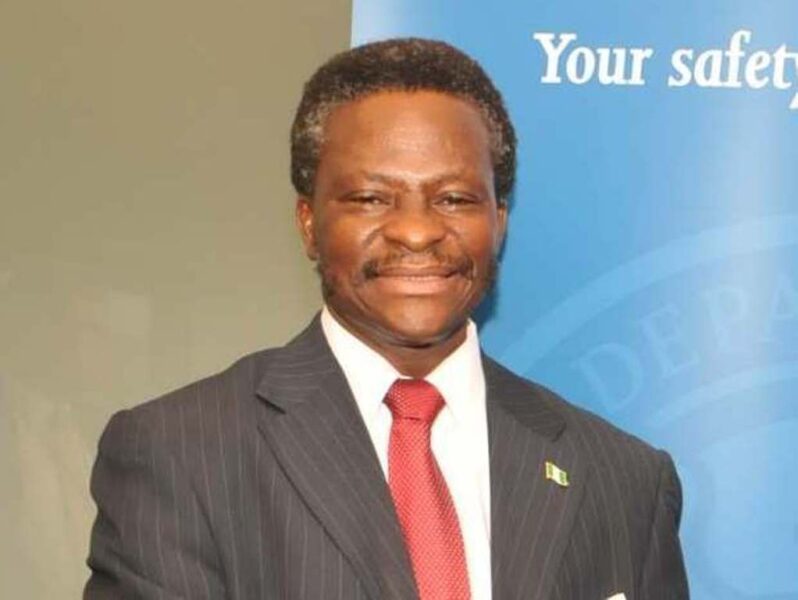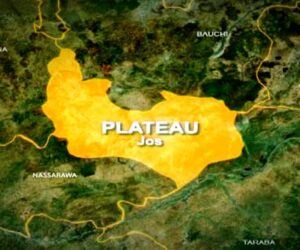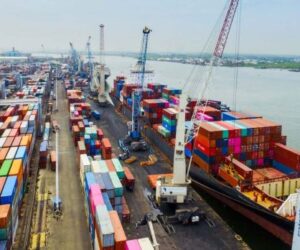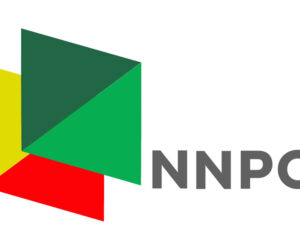9
…Says Nigeria Is “Exporting Wealth” Through Aeropolitics; Calls for Urgent Policy Intervention
Nigeria risks permanent marginalisation on one of the world’s most lucrative aviation corridors – the Lagos–London route – if decisive aeropolitical action is not taken, former Director-General of the Nigerian Civil Aviation Authority (NCAA), Dr Harold Olusegun Demuren, has warned.
Speaking at the SAPTCO Communications Inaugural Lecture held on Wednesday at the NCAA Annex, Murtala Muhammed International Airport, Lagos, Demuren said the dominance of foreign carriers has created an economic imbalance that drains Nigeria’s foreign exchange, erodes aviation competitiveness, and threatens the survival of local airlines.
According to him, Nigerian carriers are being squeezed out by a combination of capital flight, discriminatory pricing, capacity imbalance, and lack of strategic support from government.
He emphasised that while global airlines like British Airways, Virgin Atlantic, Lufthansa, KLM, Air France, Qatar Airways, Emirates, United Airlines, Delta and Ethiopian Airlines continue to enjoy massive patronage from Nigerian travellers, no indigenous operator has grown strong enough to retain value within the domestic economy.
He described the situation as “a silent export of national wealth,” noting that Nigeria’s airports are now functioning as feeder hubs that help fill foreign long-haul aircraft at the expense of local industry growth.
Demuren revealed that the scale of capital flight is staggering, recalling that at a time, Ethiopian Airlines earned nearly 50 per cent of its total revenue from Nigerian operations, making Nigeria its single largest foreign-exchange source.
He warned that this trend remains largely unchanged, as Nigeria continues to depend heavily on foreign carriers for international travel, especially on European and Middle Eastern routes.
In his keynote, Demuren described the Lagos–London route as one of the highest-yield aviation corridors in the world – fuelled by strong business traffic, a large Nigerian diaspora population, significant spending power, and deep cultural and economic ties between both countries.
He noted that the United Kingdom has effectively become a second home for millions of Nigerians due to education, housing, health services and long-standing historical connections.
He argued that the greatest invisible asset of any airline is the routes it controls – their value does not appear on balance sheets, yet they determine market dominance and strategic leverage.
For this reason, foreign airlines fiercely protect their slots on the Lagos–London route, often resisting efforts by Nigerian airlines to gain meaningful footing.
Demuren highlighted persistent pricing discrimination against Nigerian travellers. He observed that return tickets from Lagos to London can reach as high as $4,500–$5,000, while passengers flying a similar distance from Accra to London often pay between $3,000–$3,500.
He attributed this disparity to overbooked foreign carriers, limited Nigerian competition, and regional directional imbalance which keeps prices artificially high.
Nigeria, he said, is not fully maximising its Bilateral Air Services Agreement (BASA) rights with the United Kingdom due to constraints in fleet size, lack of support infrastructure and weak interlining arrangements.
BASA entitles Nigerian carriers to operate a fair share of flights on the Lagos–London route, but in practice, the country remains heavily underrepresented.
This gap became glaring in 2024 and 2025, when Air Peace briefly disrupted the pricing monopoly after launching its Lagos–London service, forcing some foreign carriers to review fares.
Demuren noted that such competition demonstrates the power of indigenous carriers when backed by strategic planning and government support.
He outlined urgent steps government must take to support the survival of Nigerian airlines:
Implement a “Fly Nigeria Act”, mandating all government-funded travel – including for public officers and official delegations – to be undertaken on Nigerian carriers where available.
Renegotiate BASA terms to ensure equitable access for domestic airlines and prevent excessive market control by foreign operators.
Provide assistance in aircraft leasing, which remains one of the biggest hurdles for local airlines amid global strengthening of aircraft lessor conditions.
Ensure timely access to foreign exchange, particularly for payment of leases, maintenance, insurance and engine overhauls.
Offer quick institutional responses during operational crises to help local carriers maintain reliability on international routes.
“Nigeria cannot afford to remain a feeding market for foreign airlines,” he stressed. “You cannot be wrong supporting your own.”
Demuren cautioned that Nigerian airlines must also put their house in order by strengthening internal structures and improving passenger experience.
He emphasised the need for operational reliability, ensuring no airline abandons passengers abroad – a recurring issue that has damaged consumer confidence over the years.
He also tasked the airlines with the development of a robust nationwide loyalty programme to retain premium passengers and attract business travellers.
He urged them maintain strict adherence to international standards including IATA safety, security, insurance, IT and clearing house compliance.
Also, they must instill reliable corporate governance, financial discipline and management stability, noting that “an airline cannot survive when it changes Managing Directors every year.”
He advised the airlines to pursue interlining and code-sharing agreements, first among local carriers, then with regional operators, before eventually joining global alliances such as OneWorld, Star Alliance or SkyTeam.
The DG of the NCAA also urged Nigerian airlines to diversify beyond Europe by strengthening new routes, citing Air Peace’s Lagos–São Paulo and Lagos–Guangzhou operations as examples of strategic opportunities that can reposition Nigeria as a major player in South Atlantic and Asian traffic flows.
Such expansion, he said, will enable Nigeria to reduce dependence on European hubs when flying to the Americas and Asia.
Dr Demuren concluded that Nigeria’s survival in the global aviation arena depends on its ability to turn aeropolitics into national strategy – leveraging high-value routes, strengthening alliances, building aviation infrastructure and formulating policies that elevate Nigerian carriers from marginal players to competitive global brands.








